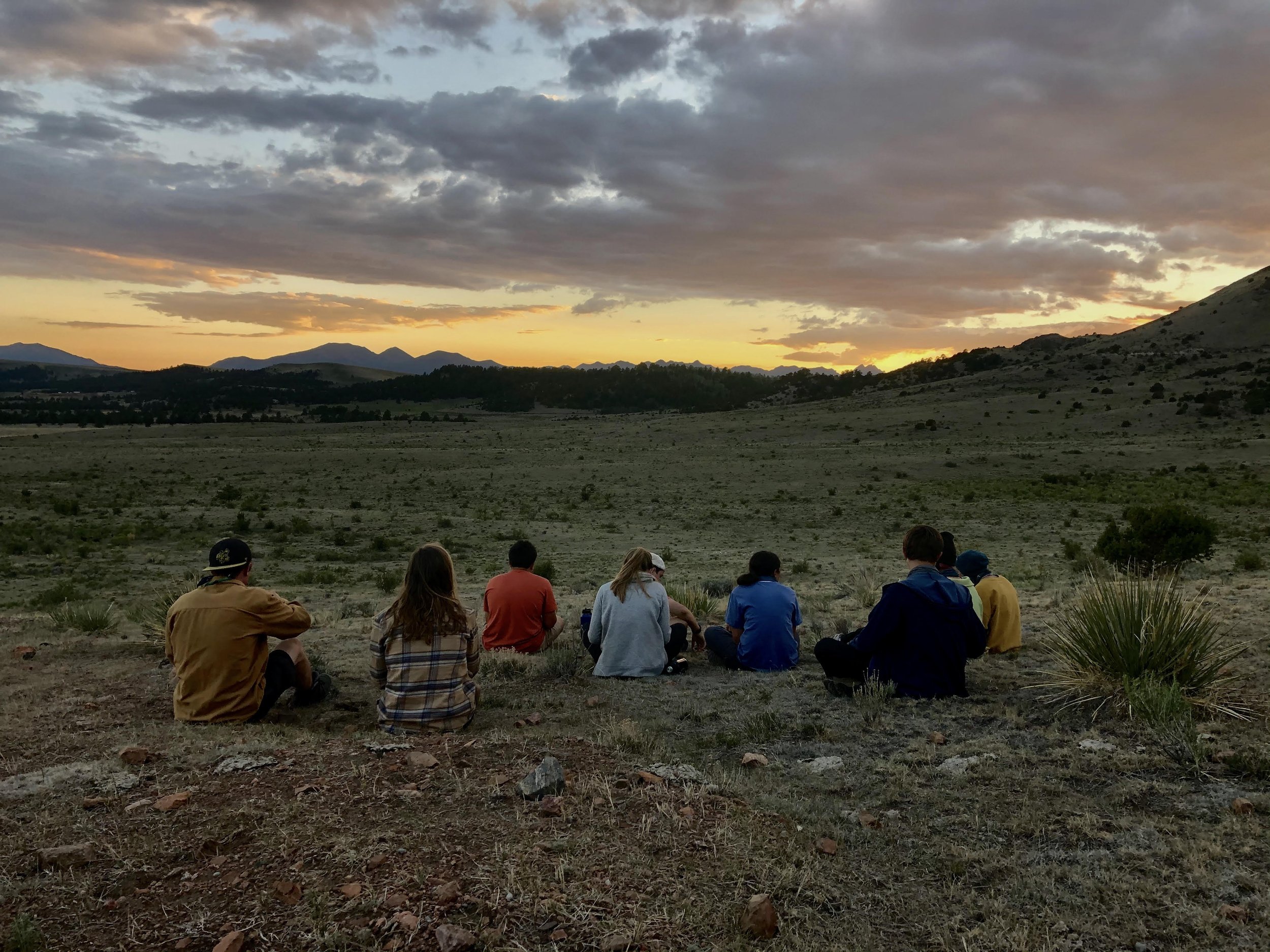Education
The land surrounding our sanctuary in the Wet Mountains offer incredible resources for group experiences.
Education
Mission:Wolf offers experiential education at our sanctuary as well as off-site Ambassador Wolf Tour programs. If you would like to visit the sanctuary, you can click below.
Over our 40-year history, Mission:Wolf has toured the United States with our Ambassador Wolf program and allowed over a million people to come face-to-face with this iconic species. We have been everywhere from the Today Show to Mr. Roger’s Neighborhood, Harvard classrooms to inner city schools, and Defenders of Wildlife boardrooms to The Cattleman’s Association. Our Ambassador Wolf and on-site education programs demonstrate why wolves, as keystone predators, are essential in the wild but not suitable as pets.
Key Education Points:
Wolves always seem to inspire emotion in people: they are either loved or reviled. As educators, we inform through facts and steer away from the emotional conversations that often happen around wolves.
Wolves are not pets: The difference between dogs and wolves
Domestic dogs want to please humans. Wild animals like wolves are independent and do not instinctually look to humans as leaders. This is the reason to keep wild wolves in the wild: They listen to their own instincts and experience acute struggle and trauma when placed in the human world.
Wolves benefit wild ungulate (elk, deer, caribou, etc) populations
Wolves (and other apex predators) are essential to a healthy ecosystem. When hunting large game, they are only successful 1 out of 10 times. Because of this, wolves will hunt the old, weak, and sick which leaves the larger and stronger animals to continue to breed resulting in healthier herds. Wolves also have one essential function in an ecosystem: They force herds to always be moving rather than overgrazing grasses and saplings. This one function has a cascade of benefits through the food system, which is why it is called the Trophic Cascade. It has powerful ripples that can even affect the course of rivers and the temperature of the water (learn more from this video). This is an ancient cycle that is the product of evolution. It also results in better hunting for humans to feed their families.
Wolves are not the "Big Bad Wolf"
Culture, movies, and TV shows love to sensationalize, dramatize, and mythologize wolves. The media is not an accurate source for wolf facts. Wolves do not hunt people, nor do they want to eat your grandma. In fact, wild wolves are in general highly cautious of people wandering their territory and will observe them from afar. This can be seen at Mission:Wolf: Our wolves are generally timid and want to hide from visitors.
Non-verbal communication
Much of human communication is non-verbal body language. Learning about body posture, calm energy control, mirroring, self-awareness, and confidence by interacting with a wolf (or wild horse) can increase one’s ability to communicate with a domestic dog, domestic horse, and even other people.
All of our programs include some degree of experiential education. Ambassador Wolf Tour programs allow audiences to see a live wolf. Visits to our sanctuary include an educational experience with one of our caretakers, observations of the wolves, and may include a wolf behavioral interaction. As a wildlife sanctuary, we defer to the needs of our wolves: If they do not want to greet visitors, we respect their choice.
You can visit our pages on Day Visits, Group Visits, and Volunteering to learn more!
